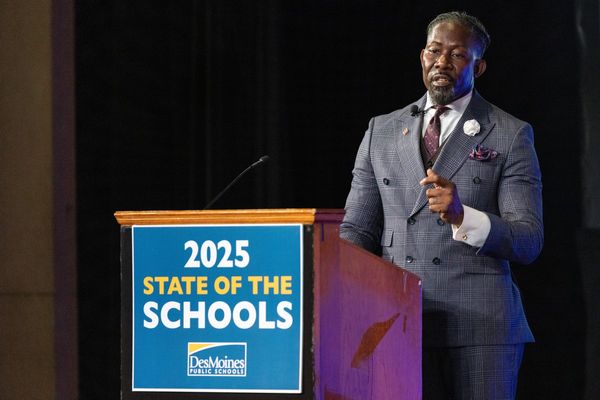Most people focus on leaders' successes. But it's vital to look at their struggles, too. Those tell the real story of persistence and determination needed to overcome obstacles.
"It's important for me to tell my stories of my upbringing in the Bronx," Reggie Fils-Aime, former president and COO of Nintendo of America, told IBD. "It's critical for leaders to share those stories. You have to rise up to those challenges to be able to overcome and be successful."
Fils-Aime's parents left Haiti in the late 1950s. The country came under the leadership of a brutal dictator. The family moved to the Bronx. The neighborhood was rough and his dad worked two jobs six days a week.
"My brother and I saw that grit and perseverance up close and personal," said Fils-Aime, who wrote "Disrupting the Game." "Role models and mentors need to exhibit these behaviors to model the behavior for younger people."
Fils-Aime ended up applying himself in school. He got into Cornell University. And he landed a job at consumer products giant Procter & Gamble. He rose to brand manager for Crisco cooking oil. It was profitable but in decline. His mandate was to return it to growth.
Determination Through Missteps
Fils-Aime led the development of a new marketing campaign. He was so convinced it would be successful that he moved up the campaign's timing. Two problems: He wasn't authorized to do that and the timing shift meant the money was being spent in the quarter prior to any sales increases. That affected profitability for the brand and its sector in that quarter.
The marketing campaign was successful. Crisco topped expectations. But Fils-Aime knew his P&G career was over. He overstepped his authority due to his determination. Still, he learned from it.
"When I joined PepsiCo I leveraged my experience at P&G to make sure I (got input from) others in the proper way," he said. "The resilience of coming back from a pretty crushing episode and being able to pick myself up and continue with my career was a critical display of grit and perseverance."
Persistence, grit and determination fall into two categories, says Martin Lanik, chief executive of Denver-based leadership development organization Pinsight. The first is when someone is deeply committed to getting something done. The other is to continue striving to reach goals regardless of the obstacles.
"That's pushing through and not giving up until you achieve your goal," he said. "We might not be successful now, but let's think of a different course of action."
Persistence Wins Followers With Determination
Things don't often go smoothly, Lanik says. The pandemic and war in Ukraine are examples. Persistence is more vital than ever to help you find the determination to achieve goals.
"When you see somebody showing enthusiasm, they persist, they don't give up, that is hugely motivating to the followers," Lanik said. "That's how you build trust and confidence."
Ukraine president Volodymyr Zelenskyy sets a good example of this, Lanik says.
"He became a global role model for persistence, grit and determination," Lanik said. "He displayed the ability to motivate people not to give up despite the odds being stacked against him. People want to follow people who show those qualities."
When Fils-Aime was with Nintendo it pivoted from the Wii U video game console that Fils-Aime calls "either the worst or second-worst-selling platform that the company launched" to the Nintendo Switch. That's now Nintendo's bestselling home console.
"That was a massive example of perseverance, grit and not taking no for an answer," he said.
Nintendo applied the lessons it learned from the Wii U and successfully applied them to Switch.
Leaders can spread determination and perseverance by highlighting their importance. Nintendo treated overcoming obstacles as a performance behavior for which it held people accountable.
"So we took specific steps to build it into the culture," he said.
Practice Your Persistence
Lanik says people can practice the ability to persist and have determination.
"This is a muscle, it's a skill that we can practice," he said.
You need to let people fail, Lanik says. Micromanagers want to do it all themselves. But that takes away the chance to let people strive to overcome setbacks.
"If you don't have that opportunity to experience failure, you won't have the opportunity to learn," he said. "You have to embrace failure and adversity."







